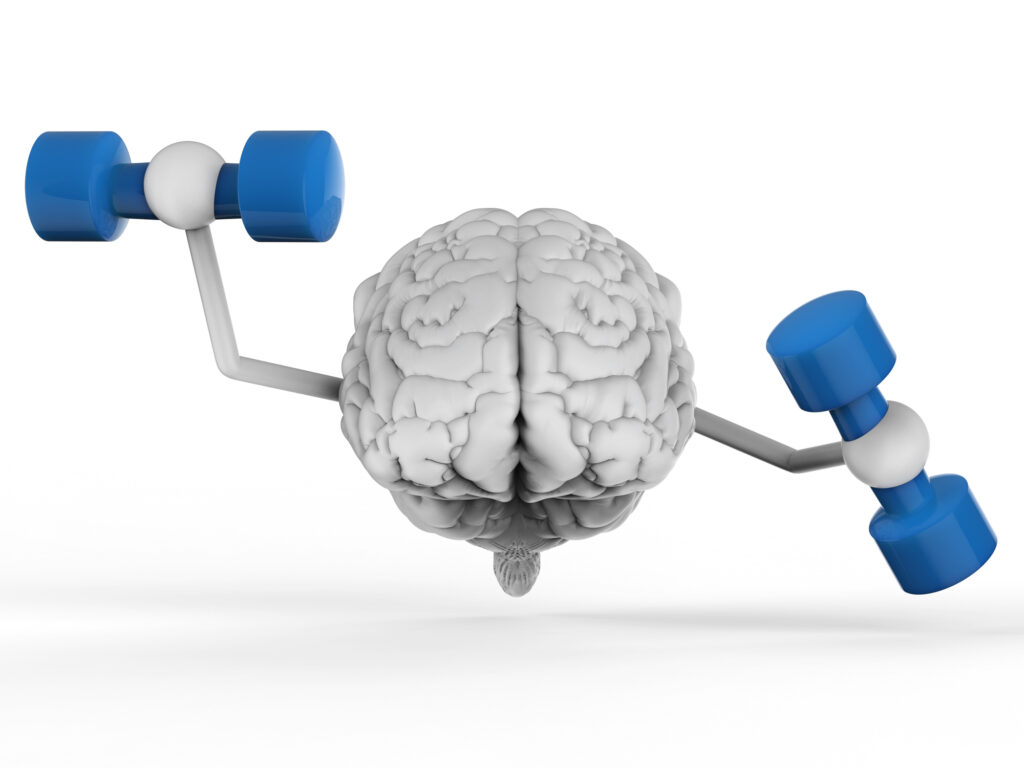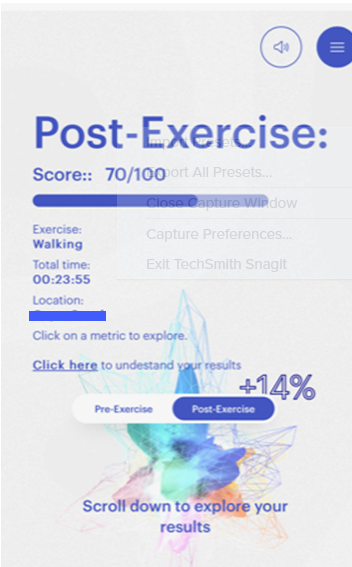
Do you find it difficult to concentrate some days at work or find focusing for longer periods a challenge? We all have off days when we struggle to concentrate, and we can’t always afford to take a day off. There is one reliable hack you can do right now to improve your brain that works for many including myself.
In general, exercise enhances mental clarity due to physiological and psychological changes providing both short-term and long-term benefits. These changes in the brain result in clearer thinking, increased focus, improved memory, and a sharper mind. The frequency, duration, and type of exercise can affect the extent of the changes, but any amount can be beneficial.
Brain fog and lack of focus are common occurrence that usually results from stress, lack of sleep, or a sedentary lifestyle. Exercise is a natural solution to combat these issues and can be done nearly anywhere. Read on so see all the ways exercise boosts brain function and how to get the most benefit for increased mental clarity.
Benefits of Exercise on the Brain
Exercise induces both physiological and psychological changes that impact your ability to concentrate and think clearly. Below are just some of the benefits that can help you banish your brain fog.
- Increased blood flow to the brain: Exercise immediately increases the amount of oxygen rich blood to the brain. The improved circulation nourishes brain cells which supports optimal function and increases mental clarity.
- Release of neurotransmitters: Exercise stimulates the release of chemicals called neurotransmitters which are responsible for regulating both physiological functions and psychological health. Dopamine, serotonin, norepinephrine, and more are released during exercise which improve both your mood and your focus.
- Stimulation of Neuroplasticity: Neuroplasticity is the brains ability to change its structure and function in response to experience which allows it to adapt. Exercise has been shown to increase the number of neurons in the brain and to improve the connections between them.
- Enhanced Cognitive Function: Exercise has been shown to help memory and thinking skills including brain fog due to aging. The size of the hippocampus, which is primarily responsible for memory, appears to be larger in ones who exercise regularly. In addition, the brain appears to change in ways to protect memory and thinking skills when it comes to aging.
- Reduction in Stress: Exercise reduces the levels of stress hormones such as adrenaline and cortisol which inhibit the portions of the brain that help store memories. Research suggests that acute stress can impair the body’s ability to retrieve memories and to think more creatively.
- Reduced Inflammation: Exercise reduces the body’s inflammatory response by releasing a protein (IL-6) with anti-inflammatory effects. Studies have found that the longer you exercise, the more IL-6 is released. Higher levels of inflammation have been shown to negatively affect cognitive processes.
- Enhanced Mood and Confidence: Exercise releases endorphins (see article here) and other hormones that improve mood. In addition, achieving exercise goals and feeling physically fit boosts mood and self-esteem. These psychological benefits often leads to increased mental clarity and quicker, sharper thinking.
- Improved sleep: Exercise promotes better sleep quality which is vital for optimal brain function. During sleep memories are consolidated and toxins are release which improves mental clarity and thinking ability.
- Time to Recharge: Exercising is an opportunity to disconnect from screen time and spend time with yourself. Stepping away from distractions and stresses can help you clear your mind, settle your nerves, and foster mental clarity.
A Groundbreaking Study on Exercise and Mental Performance
A global study done by Asics, an internationally known sportswear corporation, found astounding improvements in brain function due to exercise. The study, developed and led by Professor Brendon Stubbs, clearly shows that exercise can significantly improve cognitive and emotional wellbeing.
It involved 77 internationally ranked mind gamers (ones who rely on their cognitive skills) to start an exercise program. The study lasted for four months and resulted in the gamers’ rankings improving by 75%!
Each gamer that completed the program increased exercise levels to 150 minutes using medium impact cardio and strength training. Specifically, the study found the following below.
- Cognitive Function – + 10%
- Problem Solving Skills – + 9%
- Short-Term Memory – + 12%
- Processing Speed and Alertness -+ 10%
- Concentration – + 33%
- Confidence levels + 44%
- Anxiety levels – – 43%
For more on the study see here. The results inspired the documentary primarily following 4 world-class gamers in the video “Mind Games – the Experiment” available on Prime Video.
Asics still has an on-going study called Uplifting Mind Study that thousands have already participated in. The results have led to conclusively proving that just 15:09 minutes of exercise can uplift the mental state.
The study uses self-assessment test before and after exercise as well as facial recognition technology that mimics EEG. Together these capture the impact of exercise on the state of mind in an objective and convenient way.
I’ve used the program several times as it is simple and convenient. It provides immediate feedback which is both helpful and motivating to choose exercise for overcoming mental fatigue.
Routinely using the self-assessment test has made me more aware of the many good effects exercise is having on my mental state. I have also found that I do not rank many of the metrics as high immediate after exercising as I would just 10 minutes later.

You can also benefit from the study and see the results of just one bout of exercise for yourself. There are 10 metrics that are measured including focus, confidence, positivity, resilience, calmness, and alertness. Click on the link ASICS Mind Uplifter to get started and see your results the next time you exercise.
What Kind of Exercise is Best for Mental Clarity
Now that we have considered some of the many ways that exercise can help your brain, what kind should we do? There are certain types of exercises that seem to better than others, but any exercise will benefit us.
Studies consistently show that moderate to vigorous activity is best for improving brain function and mental clarity. Aerobic exercise such as brisk walking, running, and cycling induced many of the benefits mentioned above.
There is some evidence to suggest that strength training and other low-intensity exercises such as yoga improve cognitive function. However, there are not as many studies done and researchers aren’t sure exactly how these exercises promote brain health.
Strength training does have some additional benefits to consider when it comes to cognitive benefits. It helps prevent injuries that are common to those who regularly perform aerobic exercise. With less injuries we can consistently engage in moderate to high intensity exercise and continue to reap cognitive benefits.
Using a heart rate monitor and calculating target heart rate zones can be very helpful for reaching and staying in an aerobic zone. See my heart rate calculator here to find your personal heart rate ranges for optimal cognitive benefits.
How Long or How Much Exercise for Improved Cognitive Function

How long and how often aerobic exercise should be done is a not an exact science, but there are trends to consider. Studies show that people who exercise regularly tend to have better brain function especially as they age.
Consistent exercise is needed for all the brain boosting benefits since many, including good quality sleep, tend to be cumulative. Many experts recommend 30 minutes of moderate activity or 15 minutes of high-intensity three times a week.
According a national survey and study, the most benefit came from 45 minutes of exercise three to five times per week. When it comes to the amount, it is important to consider how you feel afterwards as more is not always better.
On the flip side, there are still benefits to mental clarity in smaller doses of exercises for shorter periods of time. For example, the study above by Asics found just 15 minutes resulted in an improved mental state.
Another study found that a single bout of aerobic exercise for 20 minutes induces a strong anti-inflammatory effect. The study here was done with participants doing a moderate treadmill activity.
Key Takeaways
The science is clear, exercise has many brain boosting benefits that can help us think more clearly and feel better mentally. Studies show that aerobic activity for 45 minutes three to five times a week appears best for cognitive benefits.
Banish brain fog by going for a 15-minute brisk walk and improve your mental performance by establishing a routine today. No doctor needed and your body will benefit in more ways than you may imagine.